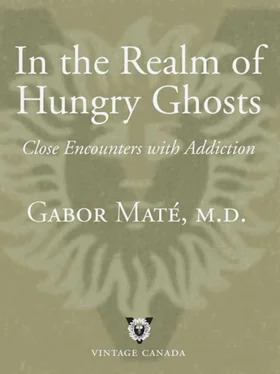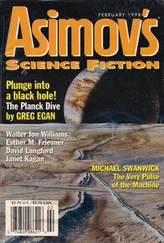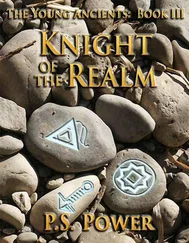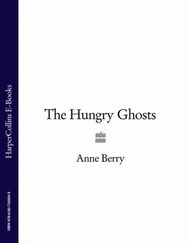How to understand the death grip of drug addiction? What keeps Penny injecting after the spinal suppuration that nearly made her paraplegic? Why can’t Beverly give up shooting cocaine despite the HIV, the recurring abscesses I’ve had to drain on her body and the joint infections that repeatedly put her in hospital? What could have drawn Sharon back to the Downtown Eastside and her suicidal habit after her six-month getaway? How did she shrug off the deterrents of HIV and hepatitis, a crippling bone infection and the chronic burning, piercing pain of exposed nerve endings?
What a wonderful world it would be if the simplistic view were accurate: that human beings need only negative consequences to teach them hard lessons. Then any number of fast-food franchises would be tickets to bankruptcy, the TV room would be a deserted spot in our homes, and the Portland Hotel could reinvent itself as something more lucrative: perhaps a luxury housing unit with Mediterranean pretensions for downtown yuppies, similar to the sold-out “Firenze” and “España” condo developments still under construction around the corner.

On the physiological level drug addiction is a matter of brain chemistry gone askew under the influence of a substance and, as we will see, even before the use of mind-altering substances begins. But we cannot reduce human beings to their neurochemistry; and even if we could, people’s brain physiology doesn’t develop separately from their life events and their emotions. The addicts sense this. Easy as it would be to pin responsibility for their self-destructive habits on a chemical phenomenon, few of them do so. Few of them accept a narrow medical model of addiction as illness, for all the genuine value of that model.
What is the truly fatal attraction of the drug experience? That’s a question I’ve put to many of my clients at the Portland Clinic. “You’ve got this miserable, swollen, ulcerated leg and foot—red, hot and painful,” I say to Hal, a friendly, jocular man in his forties, one of my few male patients without a criminal record. “You have to drag yourself to the emergency every day for IV antibiotics. You have HIV. And you won’t give up injecting speed. What do you suppose is behind that for you?”
“I don’t know,” Hal mutters, his toothless gums smothering his words. “You ask anybody…anybody, including myself, why should you put something into your body that in the next five minutes makes you drool, look gooey, you know, distort your brainwave patterns to the point where you can’t think reasonably, inhibits your speech pattern—and then want to do it again.” “And gives you an abscessed leg,” I add helpfully. “Yes, an abscessed leg. Why? I really don’t know.”
In March 2005, I had a similar discussion with Allan. Also in his forties, also with HIV, Allan had been to Vancouver Hospital with sharp chest pains a few days earlier. He was told he’d probably suffered a flare-up of endocarditis, an infection of the heart valves. Declining to be admitted to hospital, Allan presented himself instead for a second opinion at the emergency ward of St. Paul’s, where he was assured that everything was fine. Now he was in my office for a third assessment.
On examination I can see he isn’t acutely ill but is nevertheless in terrible shape. “What should I do, Doc?” he asks, raising his shoulders and spreading his arms out in helpless consternation. “Okay,” I say, reviewing his chart. “Your father died of heart disease. Your brother died of heart disease. You’re a heavy smoker. You have a history of endocarditis from IV drug use. I’m treating you for cardiac failure and even now your legs are swollen because your heart isn’t pumping efficiently. Your HIV is controlled by strong medications and, with your Hep C, your liver is just hanging in there. But you still keep injecting. And you’re asking me what you should do. What’s wrong with this picture?”
“I was hoping you’d say that,” Allan replies. “You need to tell me I’m a fucking retard. It’s the only way I learn.”
“Okay,” I oblige. “You’re a fucking retard.”
“Thanks, Doc.”
“The trouble is, you’re not a fucking retard; you’re addicted. And how are we to understand that?”
Allan died four months later, cold and blue at midnight on the floor of his room in a nearby hotel. He was injecting, rumour had it, from a bad lot of methadone heisted in a break-in at a local pharmacy and subsequently adulterated with crystal meth or who knows what. According to the coroner’s office, that little enterprise in independent drug marketing caused the death of at least eight people
“I’m not afraid of dying,” a client told me. “Sometimes I’m more afraid of living.”
That fear of life as they have experienced it underlies my patients’ continued drug use. “Nothing bothers me when I’m high. There’s no stress in my life,” one person said—a sentiment echoed by many addicted people. “Makes me just forget,” said Dora, an inveterate cocaine user. “I forget about my problems. Nothing ever seems quite as bad as it really is, until you wake up the next morning, and then it’s worse….” In the summer of 2006 Dora left the Portland and moved back to the streets, hustling for dope. In January she died of multiple brain abscesses in the intensive care unit of St. Paul’s Hospital. *2
Alvin is in his fifties, a portly, thick-armed, former long-distance trucker. On methadone to control his heroin addiction, he has recently been increasing his crystal meth use. “The first part of the day it makes me feel like I want to puke,” he says, “but then, after eight or nine hoots on the pipe…How does it make me feel? Like a fool first of all, but I dunno, it’s a ritual, I guess.”
“Here’s what I’m hearing,” I counter. “For the privilege of being nauseated and feeling like a fool, you spend a thousand dollars a month. Is this what you’re telling me?” Alvin laughs. “I only puke on the first one of the day, though. I get a high of some sort, which lasts about three to five minutes, and then…you say to yourself, Why did I do that? But then it’s too late. Something makes you keep doing it, and that’s what’s called addiction. And I don’t know how to curb that. Honest to God, I hate the shit, I honestly hate that shit.”
“But you still get something out of it.” “Well, yeah, or I wouldn’t be doing it, obviously—sort of like having an orgasm, I guess.”
Beyond the addict’s immediate orgasmic release of the moment, drugs have the power to make the painful tolerable and the humdrum worth living for. “There is a memory so fixed and so perfect that on certain days my brain listens to no other,” writes Stephen Reid—author, incarcerated bank robber and self-described junkie—of his first hit of narcotics, at age eleven. “I am in profound awe of the ordinary—the pale sky, the blue spruce tree, the rusty barbed-wire fence, those dying yellow leaves. I am high. I am eleven years old and in communion with this world. Wholly innocent, I enter into the heart of unknowing.” 1In a similar vein, Leonard Cohen has written about “the promise, the beauty, the salvation of cigarettes….”
Like patterns in a tapestry, recurring themes emerge in my interviews with addicts: the drug as emotional anaesthetic; as an antidote to a frightful feeling of emptiness; as a tonic against fatigue, boredom, alienation and a sense of personal inadequacy; as stress reliever and social lubricant. And, as in Stephen Reid’s description, the drug may—if only for a brief instant—open the portals of spiritual transcendence. In places high and low these themes blight the lives of hungry ghosts everywhere. They act with lethal force on the cocaine-, heroin-and crystal-meth-wired addicts of the Downtown Eastside. We will return to them in the next chapter.
Читать дальше













